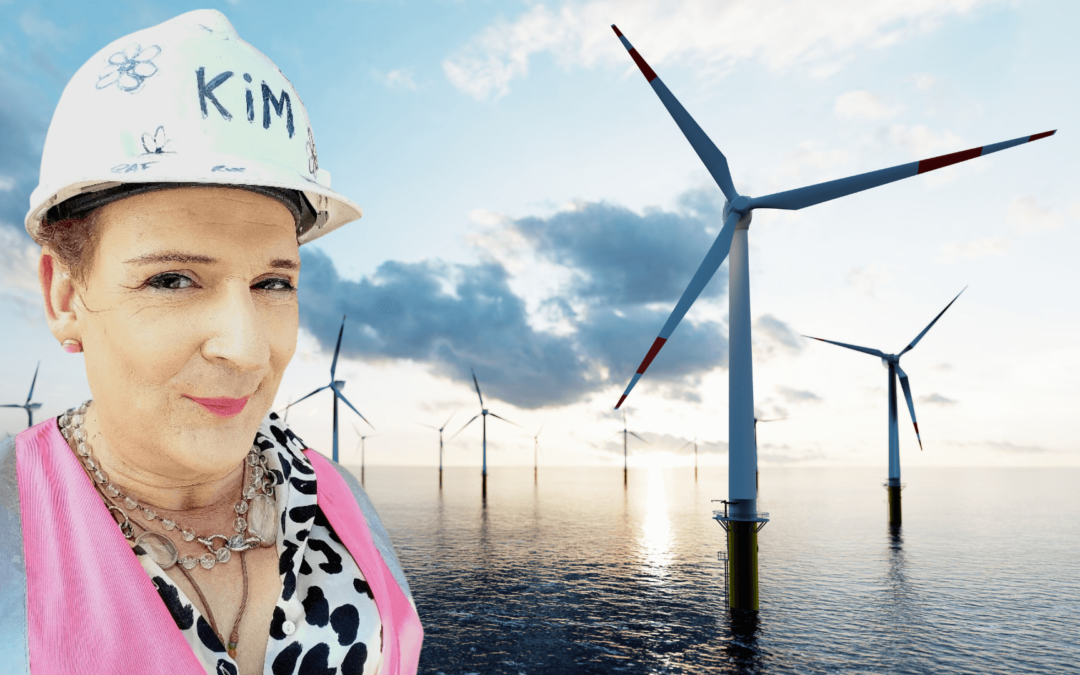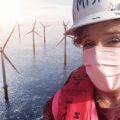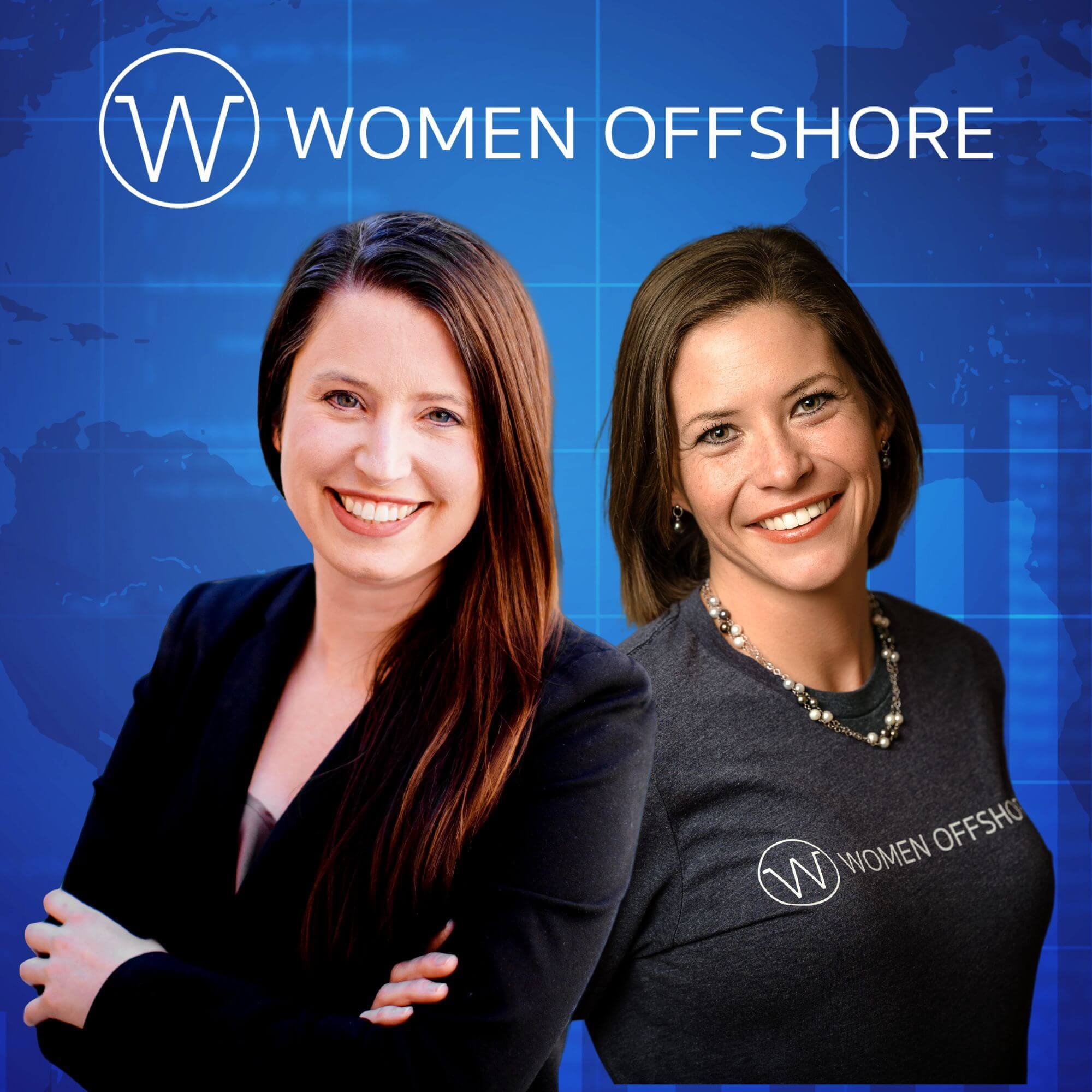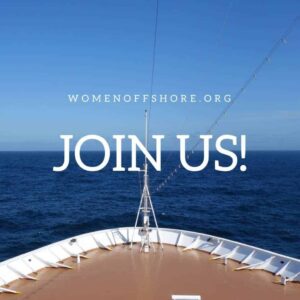Kim is one of the few transwomen in the offshore sector globally. Her path has not always been an easy one.
Remembering the beginning of her transition Kim recounted, “The first day I went into work socially transitioned was perhaps one of the hardest days of my life.” Going from a professional man to a professional woman in “one of the most masculine environments left on the planet” was tough. “I was far from home, no friends, no family, no support network, surrounded by men who were unaccustomed to having to deal with a woman in the workplace, let alone someone they had taken to be a man coming into work not looking like the other boys anymore.” But Kim persevered.
Her transition was at some points painful mentally and physically. She described facial hair removal feeling like napalm being injected into her skin, but it was not all bad. When Kim speaks about her transition, I can feel her glow through her words. “For me,” she said, “it has been by far the most challenging, painful, beautiful and intense experience of my life.” From the first day of her journey, her stress and depression disappeared, her blood pressure dropped to healthy levels within a few days, and she was able to easily shed some stubborn pounds. She values her transition saying, “It is ultimately a beautiful metamorphosis that has enabled me to value my vulnerability, my femininity and being a woman more than almost any other aspect of my life.” She glowingly added, “I never knew I could feel happiness like this.”
In speaking with Kim about not only her own experience but the experiences and journeys of other transwomen around the world she said, “I feel a strong sense of responsibility to set a good example, but also to dispel some of the myths and miscomprehensions about the transgender experience when the opportunity arises.”
She shared what she wants the world to know about the transgender community. “We do not choose to be transgender any more than you choose to be a man or a woman, tall or short, African or Asian, gay or straight.” Kim emphasized that being a transwoman does not make her one-dimensional. “Being a transwoman is only a fragment of my existence,” she said. Kim is just Kim. She is as “complex, random, and human as anyone else.” And she encourages people to ask questions in a respectful manner. “Don’t feel insecure, don’t be intimidated, don’t make assumptions, just ask. I would always much prefer you said hello and asked a question than stood there making nothing but incorrect assumptions about me.” And Kim believes many other transgendered individuals would agree on this.
Working in the offshore sector Kim said it can be hard to clear away misconception. “I try to be patient, understanding, to reach out and find a way to bridge the gap. I don’t always find a way, I am not always as patient as I aspire to be. [But] most of the time I win them over,” she said.
We talked about support in the industry for other transwomen and Kim noted access to healthcare is vital. Working internationally for years, and on a ship at that, made her access to medical support needed to transition nearly impossible. Healthcare is just the physical side of things; emotional support is just as crucial and hard to come by offshore. Kim is a fierce supporter of Safer Waves, an organization aimed at offering a safe space for seafarers to share pain and experiences and find support. For those on the water who might be struggling Kim stressed, “Do not be alone. Do not isolate yourself. Reach out. No matter how scary it might be.”
Finding ways to best support other transgender seafarers is imperative. “I would ideally like there to be some method for a transperson to inform a vessel prior to arrival and have the support to get access to medication and care in the event of emergencies,” Kim said. She spoke about the mental and physical risks of a transperson running out of hormones while on board and the nightmare that would ensue, “It would be utterly the worst thing I could possibly imagine in life for me on a personal level and the amount of mental trauma for me would be incalculable.” Providing this support is necessary for transpersons to succeed in an offshore environment.
In part 1 I told you: Kim is an advocate. She speaks out boldly when others might shy away from the chance, she encourages and supports members of the transgender community, and she works diligently to ensure those around her have everything at their disposal needed to succeed. In Taiwan she has wrestled challenges in supply chain and brought to light unspoken issues. She continues to offer solutions and be a voice for those who will not or cannot speak for themselves.
No matter how she is treated she always puts others’ rights, safety, and well-being in the forefront. “I will always stand up for them as a mariner. I will always support their rights and fight for them to be respected. I will work hard to make sure they get clean cabins, good food, good communications, well paid, reliable rotations, excellent welfare, and access to decent mental and physical healthcare services.” Kim is the woman you want in your corner. She is an advocate, an artist, a cook, a photographer, a scientist, aspiring yogi, and a woman offshore I am proud to know.








Recent Comments